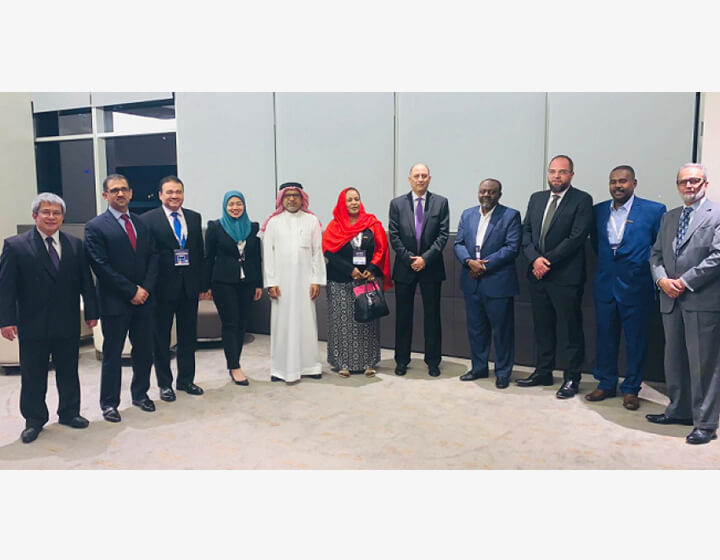
Manama, Kingdom of Bahrain: The 39th meeting of the Board of Directors of the International Islamic Financial Market (IIFM) was convened in Bahrain and was attended by representatives from its founding and permanent members namely the Central Bank of Bahrain, Bank Indonesia, Central Bank of Sudan, Autoriti Monetari Brunei Darussalam and the Islamic Development Bank as well as representatives of member financial institutions on the Board of IIFM.
The Board appreciated the fact that IIFM efforts have contributed in facilitating trade flow particularly in the cross-border market through its standardized documentation and product templates on Islamic Hedging and Liquidity Management by providing efficient, transparent, cost effective and widely accepted Shari’ah-compliant financial documentation Standards which have been developed in consultation with the industry under the guidance of distinguished Shari’ah scholars on the IIFM Shari’ah Board representing 10 different jurisdictions.
Khalid Hamad Abdulrahman, Chairperson of IIFM said, “IIFM has gained much credibility and has reached a stage of maturity with sound achievements today, however, there is still a burning need to get its Standards to be used more actively by wider market players which can only happen if there is a strong endorsement from regulators, particularly those in Islamic banking markets across GCC and Asia”.
A survey carried out by IIFM highlights a marked increase in use of IIFM Standards by financial institutions and other market players active in Islamic finance; however, more penetration is still required to reach the desired implementation levels. As part of its 3 Year Strategic Plan (2017-2020), in 2018 IIFM embarked on an awareness program on its Standards by holding several awareness seminars supported by regulators in Bahrain, Kuwait, UAE and Malaysia and will continue with these efforts by organizing more seminars and round tables supported by regulators in different jurisdictions in 2019.
To further improve the outreach of its Standards, translation of IIFM Standards in other languages starting with French, Bahasa Indonesia and Turkish languages was approved at the meeting and the Board also acknowledged the progress being made in collaborating with consultants and training institutes for providing training materials on IIFM Standards.
Two new Standards to be published soon by IIFM were also discussed at the meeting. It is expected that these Standard framework documentation relating to Trade Finance will pave the way in increasing Shari’ah-complaint trade related activity and will help the smaller institutions to participate in trade finance transactions generated by large institutions.
Apart from these, two more Standards are currently under development at the IIFM covering Sukuk Al Ijarah and Sukuk Al Mudarabah documentation which will help in reducing the cost and time associated with Sukuk issuances. These Standards will also be supported by guidance notes for clarity and transparency and will be published in 2019.
Other initiatives to be embarked upon by IIFM during 2019 were also considered favorably such as the development of standardized gold related documentation to be used by financial institutions active in Shari’ah-compliant gold business in collaboration with relevant international bodies.
“Collaboration with other Islamic and international standard-setting organizations is necessary as with combined efforts we can achieve greater unification and legal certainty to bring about more innovation, capacity building and market development”, said Ijlal Ahmed Alvi, Chief Executive Officer of IIFM.
The challenges facing development of an Islamic benchmark reference rate and the need for further research in this area was also deliberated at the meeting. IIFM will soon organize a roundtable discussion on this important topic sponsored by The Waqf Fund (Bahrain) which will be attended by key regulators, bankers, Shari’ah scholars, researchers and academics to discuss this subject from a theoretical and practical point of view.

